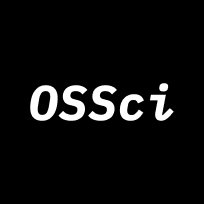Building Bridges for a Sustainable Future Through Open Source
Open source software is emerging as a foundational element of the infrastructure required to meet the challenges in energy, climate, and the environment. On January 16th, NumFOCUS convened a group of 30+ researchers, developers, and practitioners across disciplines to explore how our community can support the advancement and adoption of open source in related domains. The group decided to move forward with an Innovation Sprint framework to identify shared, ecosystem-level challenges and work toward practical solutions. In brief, an innovation sprint is a 6-9 month process of design, development, and deployment.
Participants in the call represented an array of expertise, spanning computational economics, astrophysics, geosciences, domain-specific languages, battery modeling, and climate science. Each of us is united by a shared belief: that open source tools can drive real-world impact in addressing the urgent crises of our time.
During the hour call, we identified over 25 ecosystem challenges, including:
disconnected sub-groups;
duplicative efforts;
legacy systems;
a lack of communication between developers and end-users.
Among a list of over 30 questions, we asked ourselves:
How might we better connect software developers with the policymakers, researchers, and practitioners who rely on their tools?
How might we elevate open source solutions as essential components of climate-critical infrastructure?
How might we ensure the continuity of projects and secure the resources necessary for long-term impact?
Our roadmap ahead involves refining a comprehensive "problem board" to isolate and scope one to three priority challenges. These challenges will be systematically addressed over the duration of the sprint.
Tackling these challenges will require leveraging our collective insights and expertise.
We invite you to join the sprint for our next call on February 20th, at 1pm ET.
Register to attend here.
View our ongoing progress here.
